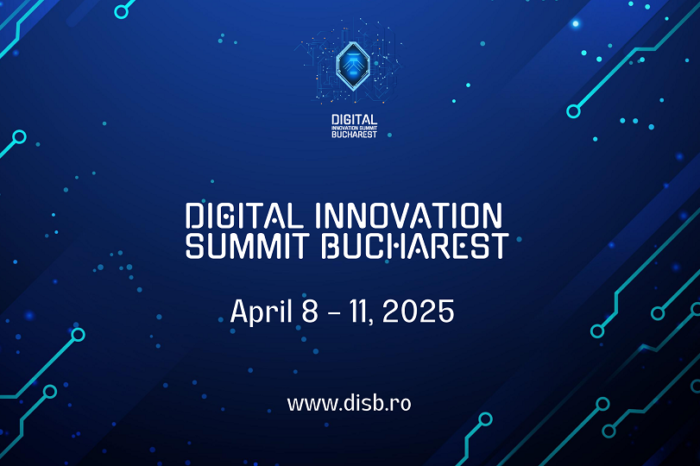A Paradox: Sovereignty Without Digital Sovereignty?

Or What “Romania First” Could Mean in Technology
Opinion by Radu Puchiu, Director Technology & Society Program – Aspen Institute Romania
The electoral campaign is filled with calls for sovereignty. We hear about controlling resources, achieving energy independence, and protecting physical borders. But few candidates seem to realize that, in the 21st century, any honest discussion about sovereignty must begin in the digital space: Can you be sovereign in a hyperconnected world where the economy creates value through freely circulating data? What kind of sovereignty can a country claim when it depends on platforms, equipment, and technologies it does not own?
This is one of the paradoxes of the current campaign: We invoke sovereignty in the language of the past while ignoring the very battlefields where sovereignty is being decided today. What does a relevant Romania look like in the technological context of the 21st century?
What Would a “Romania First” Digital Agenda Look Like
Last night, while one of the major TV stations were broadcasting a presidential debate full of the clichés of past campaigns, I was on the radio, talking about digital transformation.
The moderator spontaneously named our conversation “the debate that never was.” And rightly so. Digitalization was absent not only from the public debate but also from the candidates’ official platforms.
Why is this important? Without discussing digital technologies, one cannot speak seriously about economic growth and competitiveness. You cannot speak about education without recognizing that it must include and rely on digital foundations. You cannot speak about national security while ignoring our dependencies on foreign platforms and technologies. This absence from the Cotroceni race narratives says more than all the promises delivered on stage.
I was asked why digitalization is missing from the candidates’ discourse. I see three main reasons:
- Because it doesn’t bring immediate votes. Digitalization is not an instant benefit. It’s complicated, technical, slow. You can’t explain it on a campaign poster, yet it is essential for any serious modernization project—that is, if you are promising a developed country.
- Because it forces accountability. Talking about digitalization means risking uncomfortable questions: Why doesn’t Platform X work? Why is Form Y still a PDF? It is easier to stay silent than to admit the system’s inertia. Avoiding the subject is easier than fighting the hard battle of changing mindsets.
- Because it’s hard to reconcile with traditional notions of sovereignty. Many politicians still fail to see the link between technology and geopolitics. But today, whoever controls the data, the infrastructure, and the algorithms control development, often culture, and sometimes even elections. Not in the future — today.
What Could a Digital “Romania First” Agenda Truly Mean?
When we speak about sovereignty, we must also begin to discuss cloud governance, public AI systems, and the destination of our national data. I see seven essential pillars for a “Romania First” approach to technology:
- Digital sovereignty: National control over critical infrastructure and strategic technological choices.
- Technology for citizens: Digitalization must not be a goal in itself but a tool for access and equity — a better citizen experience with the State.
- Fair fiscal value: Platforms that profit from the Romanian market must contribute proportionally — this means aligning with OECD digital tax proposals.
- The State as a player, not just a client: Public administration needs its internal internal digital expertise prepared for the digital economy.
- Support for technology developed in Romania: We need a national digital industrial policy.
- Digital education as a pillar of sovereignty: Human capital must be treated as a strategic asset, aligned with the century’s challenges.
- Affirmation of Romanian digital identity: Romanian language, culture, and values must be visible, protected, and represented across platforms, algorithms, and content. To exist digitally is to preserve national memory.
None of these are luxuries. They are matters of national interest. And they should be present in public discourse and among the priorities of our leaders.
Do We Need a “Digital President”?
I don’t see the role of a president as an IT expert. But rather as someone who can state clearly: “Romania needs a strategic digital approach just as much as energy security.” A president can demand real interoperability, insist that digital education is not a privilege of urban centers, and elevate digitalization to a national security matter — including within the Supreme Council of National Defense.
A “digital president” does not personally digitalize the country but creates the space, the pressure, and the courage for others to do so. Perhaps most importantly, insist that Romania’s digital transformation is real and driven by those who truly know how—not merely by those who have something to sell to the State.
An Analog Country, Seeking a Digital Future
Romania has tremendous digital potential: Talent, start-ups, ideas, a strong IT industry. But it does not yet have its own digital story.
That is why we need leaders who do not just talk about the future but connect that future to our current digital reality—leaders who create the right frameworks for change to happen, who persist, and who inspire trust in the journey ahead.
Until then, sometimes a radio interview, a social media post, or an article becomes the only place where the future demands a voice.
And we — those who see what is missing — must stop waiting for debates. We must provoke them.















